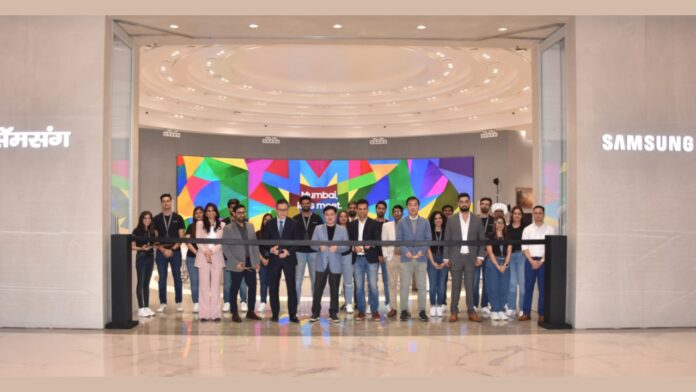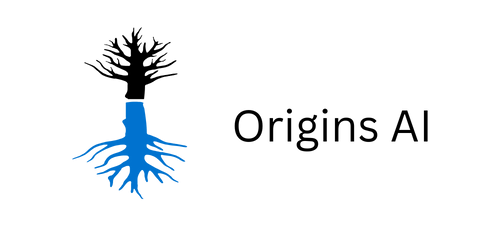Origins-AI and Samsung Partnership: Advancing IoT Development and User Verification
The partnership between Origins-AI and Samsung R&D Institute India was established to enhance IoT solutions and ensure robust user verification mechanisms. Working as a Software Development Firm for Samsung’s IoT team , Origins-AI played a vital role in developing tools, designing models, and leveraging machine learning to analyze user data for fraud detection. Key contributions included plugin development for Tizen Studio and server and web tools to streamline data visualization and improve IoT security.
About Samsung
Samsung India, a subsidiary of South Korea’s Samsung Electronics, has been a significant player in India’s electronics market since its establishment in 1995. The company operates two major manufacturing plants: one near Chennai, producing home appliances like refrigerators and washing machines, and another in Uttar Pradesh, recognized as the world’s largest mobile factory since 2018. In the smartphone segment, Samsung holds a substantial market share, producing most devices domestically. The company also leads India’s smart TV market and operates three R&D facilities in Noida and Bengaluru.
Our Partnership with Samsung
Industry
Technology & Electronics
Services
IoT Data Analysis and Model Development
Business Type
Research & Development
Technologies Used
Python
Machine Learning
Server Development
IoT Sensors
Data Visualization Tools
The Challenges
IDV (IoT Data Validation)
Ensuring the authenticity of smartwatch user data was a critical issue, especially with data coming from various sensors such as accelerometers and gyroscopes. The challenge was to filter out unreliable data that could potentially skew user identification accuracy.
MCC (Model Calibration Complexity)
Calibrating the machine learning model for detecting fraudulent behavior required extensive tuning due to variations in user walking patterns and sensor data accuracy. The challenge intensified as the model had to differentiate subtle behavioral nuances between legitimate and fraudulent users while adapting to new data continuously.
PLD (Plugin Development Delay)
Developing plugins for Tizen Studio to support both Eclipse and Visual Studio Code environments introduced significant integration challenges. Differences in IDE architectures and their handling of TypeScript led to compatibility issues, causing delays and impacting developer productivity.
SRL (Server Reliability):
The server handling data uploads and model retrieval faced performance bottlenecks due to high data volumes and varied user access patterns. Ensuring stable, uninterrupted service while managing concurrent requests from multiple devices posed a major reliability challenge.

The Solutions
Data Validation Pipeline
We implemented a robust data validation pipeline that pre-processed data from smartwatches, filtering out anomalies and detecting inconsistencies.
Model Refinement
Leveraging advanced machine learning techniques, we calibrated the model using diverse data sets that represented various user profiles and behaviors.
Server Optimization
Server optimization included restructuring code for efficiency, implementing caching strategies, and using load balancers to distribute incoming requests evenly.
Multi-IDE Plugin Integration
To address compatibility issues, we implemented a unified plugin structure in TypeScript and added an automated testing framework to catch IDE-specific issues early in development.
See our Excellence being validated
What Our Partners Say?
Frequently Asked Questions
What AI services does Origins AI offer for enterprises?
Origins AI provides end-to-end AI-driven solutions, including AI strategy consulting, data engineering, machine learning model development, AI agent deployment, and digital transformation services. We work with enterprises to modernize operations, enhance decision-making, and unlock new revenue opportunities.
Are your AI solutions compliant with industry regulations like ISO, SOC 2, or GDPR?
Yes. We follow globally recognized standards such as ISO 27001, SOC 2, and GDPR guidelines. Our solutions are designed with built-in compliance measures to ensure data privacy, security, and regulatory alignment for industries like healthcare, finance, and e-commerce.
How does Origins AI integrate AI into existing enterprise systems?
We specialize in integrating AI solutions into both modern cloud-based platforms and legacy systems. Using APIs, middleware, and custom connectors, our team ensures minimal disruption while enabling advanced analytics, automation, and real-time insights within your current infrastructure.
What engagement models do you offer for long-term or ad hoc AI needs?
We offer flexible engagement models, including dedicated AI teams, project-based contracts, time-and-materials agreements, and build-operate-transfer (BOT) partnerships. This allows enterprises to choose the most cost-effective and scalable option for their needs.
Do you provide fixed-cost or milestone-based pricing?
Yes. Depending on project scope and requirements, we can work on fixed-cost, milestone-based, or subscription-based pricing models, ensuring transparency and predictable budgets.
What industries benefit most from your AI solutions?
We serve industries including healthcare, fintech, retail, logistics, manufacturing, travel, and telecom. Our domain-specific AI models and expertise allow us to tailor solutions that solve sector-specific challenges and deliver measurable ROI.
Do you provide AI education and consultancy for internal teams?
Absolutely. We offer enterprise AI training programs, workshops, and consulting services to help upskill your teams in AI strategy, data science, and AI product deployment, ensuring sustainable AI adoption.
What frameworks and technologies do you use to speed up delivery?
We leverage modern AI and development frameworks such as TensorFlow, PyTorch, LangChain, MLOps pipelines, and container orchestration tools like Kubernetes. Our use of pre-built AI agents and modular architectures accelerates deployment timelines without compromising quality.
How do you ensure data security in your AI solutions?
We use advanced encryption (both at rest and in transit), secure authentication protocols, and continuous security monitoring. All data handling adheres to the principle of least privilege, ensuring maximum protection against unauthorized access.








